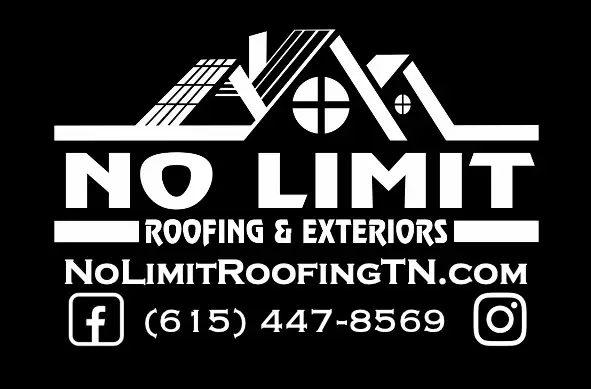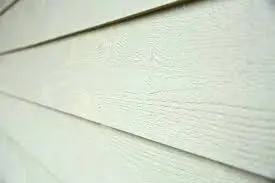
What is the best siding for your home? Selecting siding for your home is a significant decision that impacts both its appearance and durability. For Middle Tennessee homeowners, unique weather patterns like humid summers, occasional storms, and fluctuating temperatures must be considered. The right siding can boost curb appeal, increase energy efficiency, and protect your home for years. This guide will help you understand how to choose the best siding for your Middle Tennessee home.
No Limit Roofing & Exteriors, LLC is your one stop shop for all of your roofing, siding, gutter, and window replacement needs. We are first responder owned and operated bringing a level of trust and integrity that surpasses all expectations. We are based in Sumner County but proudly serve all of Middle Tennessee. Give us a call today to set up your free inspection and consultation. CLICK HERE to fill out our contact form. You can also get a free instant roof replacement estimate. Just CLICK HERE.
Understanding Your Climate and Its Impact on Siding
Middle Tennessee’s climate is marked by high humidity, frequent storms, and seasonal temperature changes. These factors affect siding performance:
- Humidity Resistance: Materials prone to moisture damage may warp, rot, or grow mold in Tennessee’s humid conditions.
- Storm Durability: Strong winds and storms demand siding that resists impact and protects your home’s structure.
- Insulation Needs: Middle Tennessee winters can be chilly, so siding with good insulation properties can reduce energy costs.
By understanding these weather conditions, you can narrow down siding materials suitable for your home.
Popular Siding Options for Middle Tennessee Homes
Here are the most commonly chosen siding materials in Middle Tennessee, along with their benefits and drawbacks:
1. Vinyl Siding
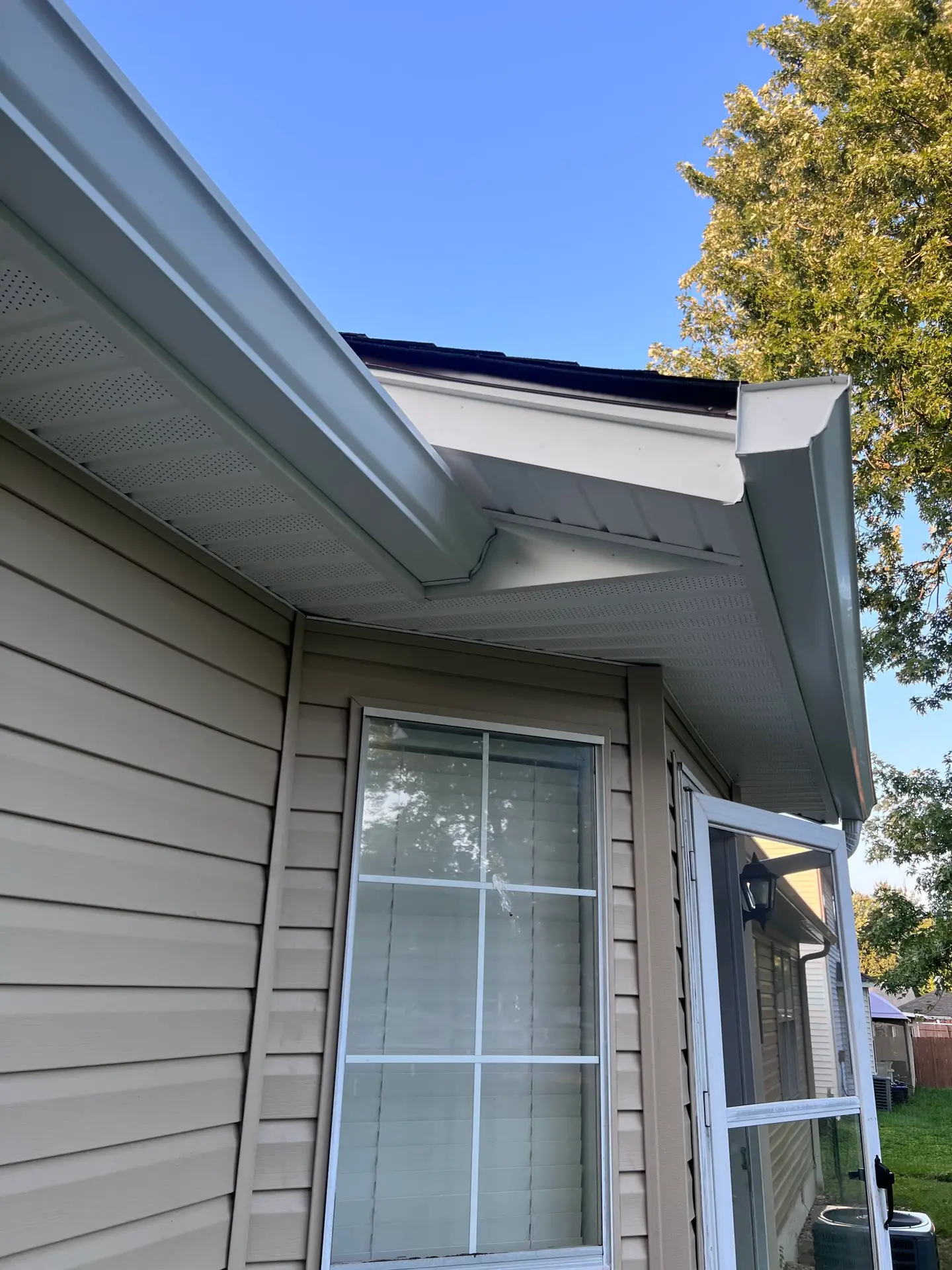
Vinyl siding is one of the most popular options for Middle Tennessee homes due to its affordability and versatility.
- Advantages: Low cost, minimal maintenance, and various color and texture options make vinyl a convenient choice.
- Drawbacks: It may crack under extreme heat or strong impacts, reducing its durability in severe weather conditions.
- Best For: Budget-conscious homeowners seeking customizable and low-maintenance siding.
2. Fiber Cement Siding (e.g., James Hardie)
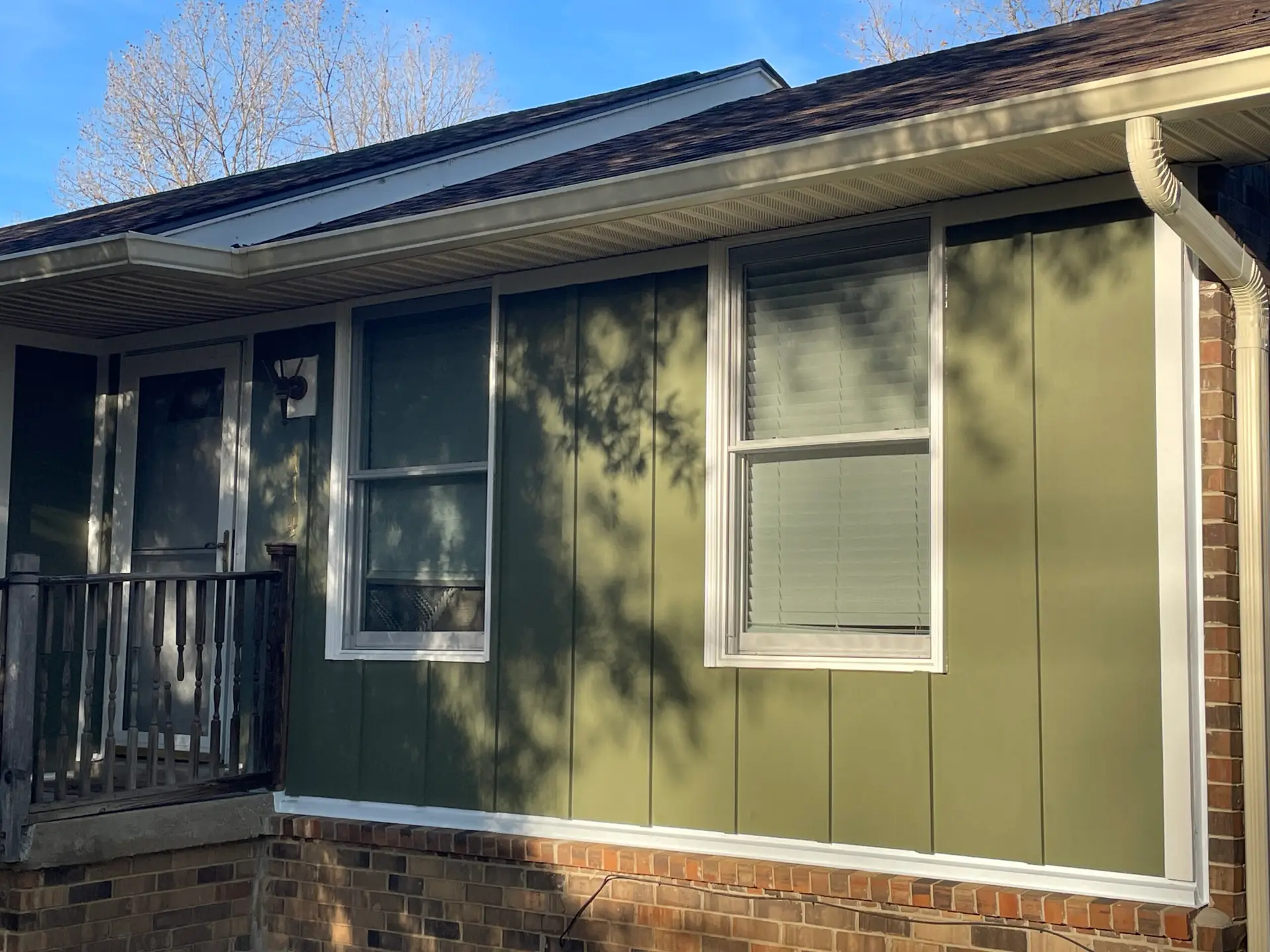
Fiber cement siding is durable and designed to withstand harsh conditions, making it a great option for Tennessee’s storms.
- Advantages: Resistant to fire, rot, insects, and extreme weather. It offers a wood-like appearance without the maintenance.
- Drawbacks: Higher initial cost and more complicated installation than vinyl siding.
- Best For: Homeowners looking for long-term durability and low maintenance.
3. Wood Siding
Wood siding brings a classic, rustic charm to homes, often enhancing curb appeal in scenic areas.
- Advantages: Offers natural beauty and easy customization through stains or paints.
- Drawbacks: High maintenance is required to prevent rot, mold, and pest damage.
- Best For: Traditional homes or properties where aesthetics are a top priority.
4. Engineered Wood Siding
Engineered wood siding combines the beauty of real wood with improved durability and resistance to weather.
- Advantages: More resistant to moisture and pests than traditional wood. It’s lighter and easier to install than fiber cement.
- Drawbacks: Susceptible to impact damage and may require periodic maintenance.
- Best For: Homeowners seeking a balance between natural aesthetics and durability.
5. Brick or Stone Veneer
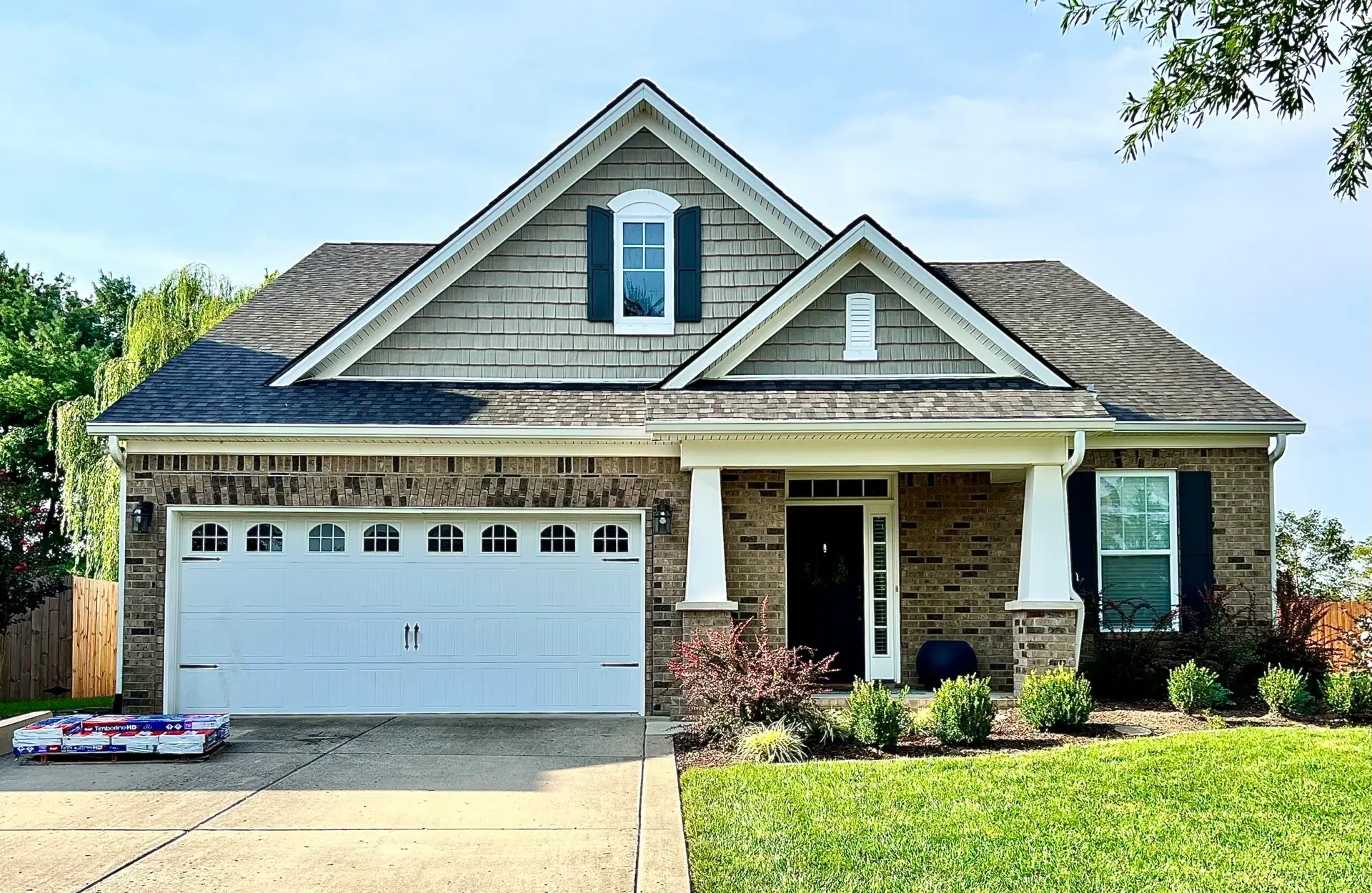
Brick and stone veneers are often chosen for their timeless look and durability.
- Advantages: Excellent resistance to weather, pests, and fire while providing high resale value.
- Drawbacks: High upfront costs and a heavier weight, which may require structural reinforcement.
- Best For: Homes with traditional or luxury designs.
Factors to Consider When Choosing Siding
1. Budget
Determine how much you’re willing to invest in siding. Vinyl is budget-friendly, while fiber cement offers long-term value.
2. Maintenance Needs
Consider the level of upkeep required. Vinyl and fiber cement siding are low-maintenance, while wood needs frequent attention.
3. Aesthetic Appeal
Your siding should complement your home’s style and neighborhood. Fiber cement and engineered wood offer diverse designs.
4. Energy Efficiency
Insulated siding can reduce energy costs by maintaining indoor temperatures. Energy-efficient options are ideal for Middle Tennessee winters.
5. Longevity
Materials like fiber cement and brick last longer than vinyl or wood, making them better investments for long-term homeowners.
When to Call a Professional
Some siding materials, like fiber cement or stone veneer, require professional installation due to their complexity. Additionally, a professional contractor can:
- Evaluate your home’s structural needs.
- Recommend materials suited to Middle Tennessee’s climate.
- Ensure proper installation to avoid costly repairs later.
Working with a local company like No Limit Roofing & Exteriors ensures you receive expert advice and reliable service tailored to Middle Tennessee homes.
Benefits of Choosing the Right Siding
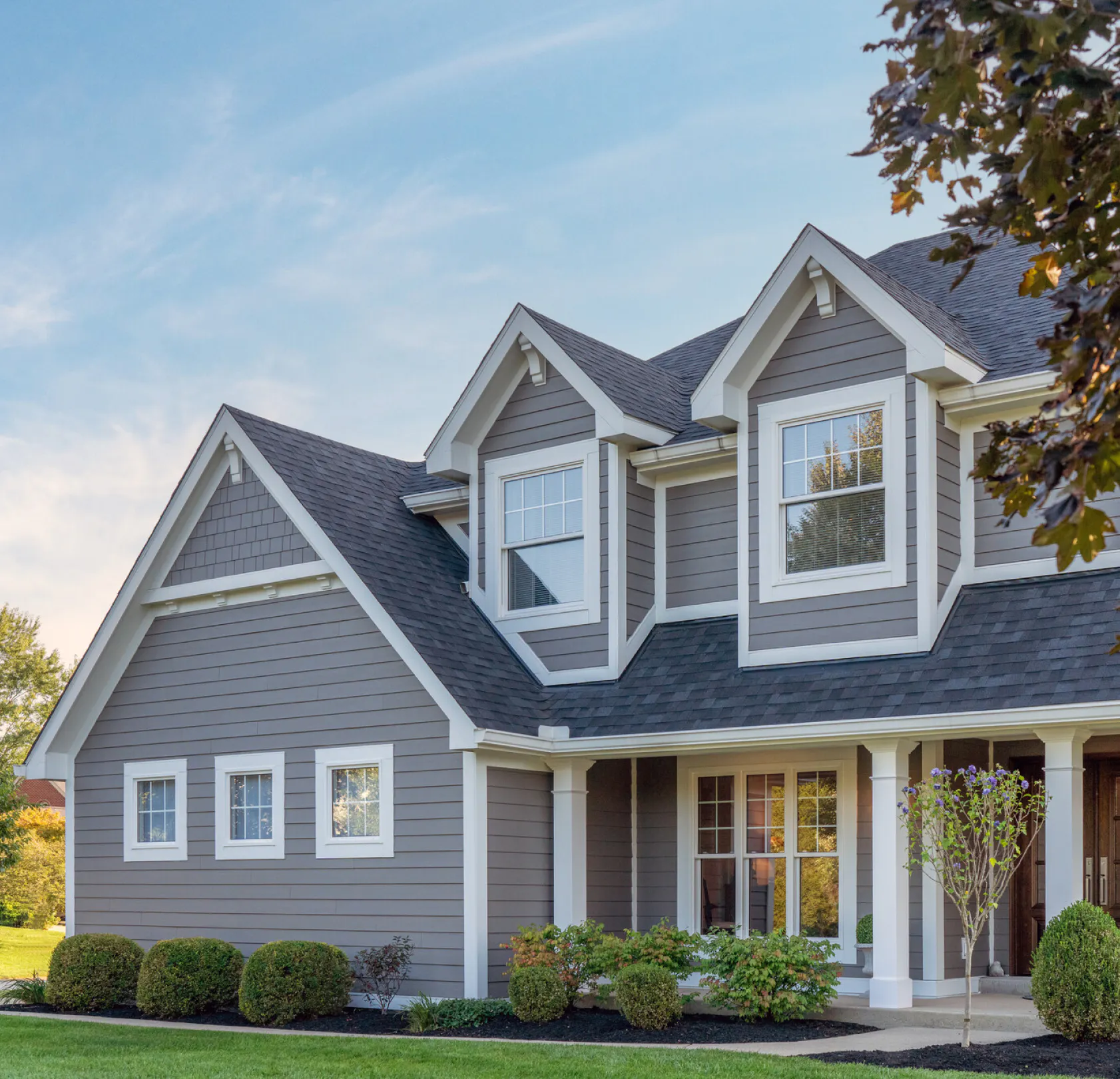
Investing in the right siding brings numerous advantages:
- Increased Curb Appeal: A fresh, well-maintained exterior enhances your home’s overall aesthetic.
- Improved Energy Efficiency: Quality siding can lower heating and cooling costs throughout the year.
- Better Weather Protection: Durable siding shields your home from storms, moisture, and pests.
- Higher Resale Value: Homes with upgraded siding often attract higher offers on the real estate market.
Conclusion
Choosing the best siding for your Middle Tennessee home involves balancing durability, aesthetics, and cost. Options like vinyl, fiber cement, and engineered wood all offer unique benefits. For expert advice, trust local professionals like No Limit Roofing & Exteriors to guide your decision.
With the right siding, your home will not only look stunning but also withstand Tennessee’s unpredictable weather for years to come.
